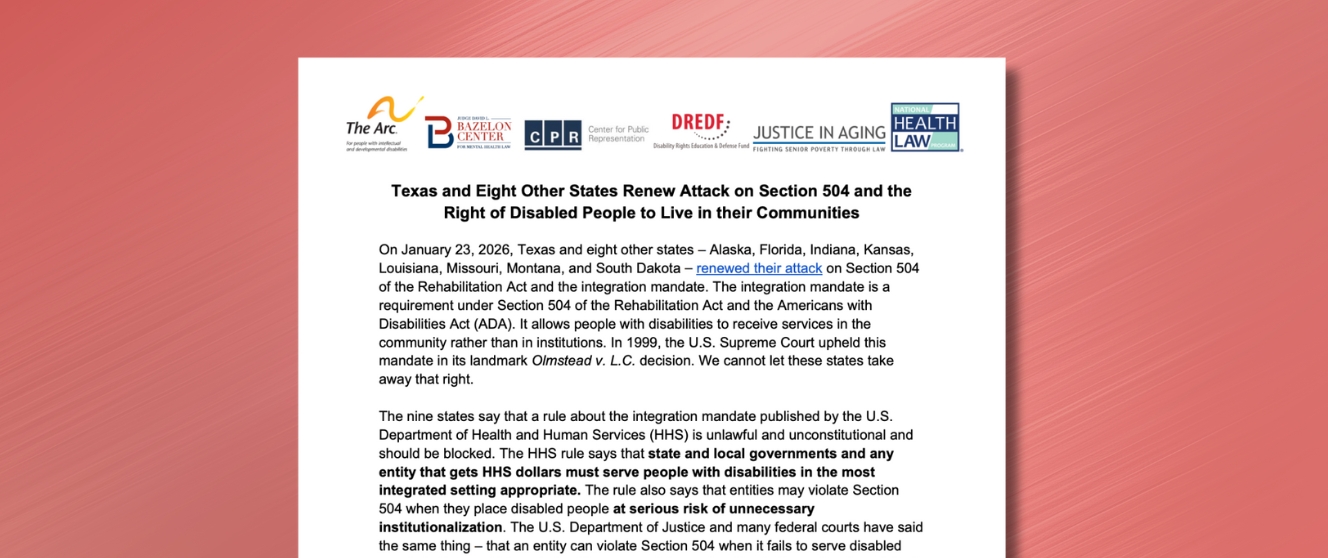
August 8, 2019
When the Affordable Care Act (ACA) was enacted in 2010, Congress intended to provide equal and comprehensive access to health insurance coverage to all Americans, including Americans with disabilities. Many people with disabilities and their families remember being denied or terminated from health coverage, being unable to afford health insurance, and facing specialized annual and lifetime benefit limits. Before the ACA, if a disabled person found health insurance, it would often leave out coverage of any pre-existing condition and fail to offer important benefits such as mental health coverage, durable medical equipment, or maternity care. The ACA banned many of these enrollment practices and coverage limitations. Equally important, Section 1557, the nondiscrimination provision of the ACA, explicitly requires health insurers to meet an individual’s basic health needs, without exclusion or limitation on the basis of race, age, sex, or disability and provides enforcement mechanisms such as a private right of action and an administrative complaint mechanism. The regulations originally enacted under Section 1557 after extensive public input recognize that benefit limits and designs based on health status or disability are discrimination and are a critical way to ensure that people with disabilities receive fair and comprehensive health care.
The Trump administration has proposed a new rule that would sharply cut back on the intended breadth and reach of Section 1557, rolling back the nondiscrimination protections that Section 1557 gives to many groups that commonly experience health care discrimination and health disparities. The proposed rule hurts people with disabilities, Limited English Proficient individuals, and LGBTQ persons. We invite everyone in the disability community to use the various resources below and submit a comment against Health and Human Service’s adoption of the Section 1557 changes.
Comments must be submitted by 11:59 PM Eastern time on Tuesday, August 13, and may be submitted here.
DREDF worked with the Consortium for Citizens with Disabilities (CCD) to create a summary explanation of the changes to the Section 1557 regulations that are being proposed by the Trump administration, and to provide a comment template that can be adopted for personal and organizational use.
Download: One page explanation of proposed changes to Section 1557 (DOCX)
Download: Short comment template for individuals or organizations to send in personal experiences and comments (DOCX)
In these comments, DREDF provides section-by-section analysis of how the proposed changes to the Section 1557 regulations would harm health care consumers and undermine the ACA’s clear objectives. While the primary focus of these comments is on the impact that the proposed rules would have on people with disabilities, we also briefly highlight prospective impacts on other historically marginalized groups whose identifies often intersect with disability.
Download: Full DREDF comments on proposed changes to the Section 1557 regulations (DOCX) Updated 8/13/19
DREDF also worked closely with other CCD member organizations to produce a full section-by-section analysis of how the proposed changes to the Section 1557 regulations would harm health care consumers with disabilities and undermine the ACA.
Download: Full CCD comments on proposed changes to the Section 1557 regulations (DOCX)

